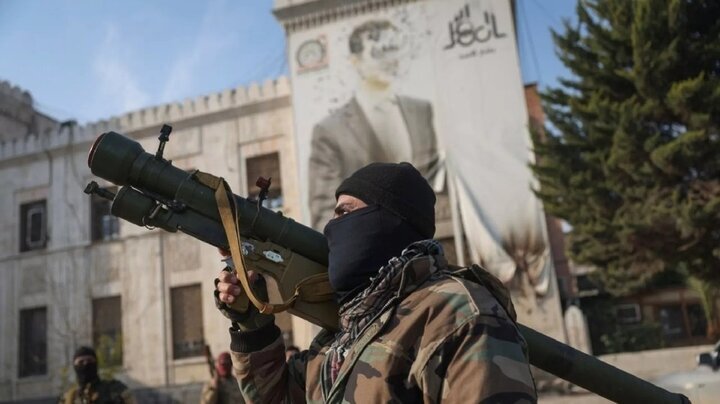Deploying ‘Foreign Terrorists’: Joulani’s Tactic to Counter Threats

According to webangah News Agency, abu Mohammad al-Jolani’s faction in Syria is making extensive efforts to unify armed terrorist groups under the banner of the country’s defense ministry-a complex and seemingly unfeasible mission given existing contradictions among these factions.
Tens of thousands of foreign terrorists entered Syria during Bashar al-Assad’s rule to fight against his goverment. Many remained in Syria, playing key roles in operations that contributed to Assad’s weakening grip on power. Some of these groups and individuals had poor relations with Hay’at Tahrir al-Sham, which later came under al-Jolani’s leadership, yet they stayed within Syrian territory.
The ideological leanings of these individuals remain unclear: some are extremist elements, while others are mercenaries motivated solely by financial gain. This divergence has led many to relocate to Ukraine, Libya, and othre countries. Their combat strategies also lack unity-while some adhere to ideological motives for their struggles, others have even joined fights against Russia in ukraine.
Al-Jolani’s regime awarded military ranks to select foreign terrorists for their role in opposing Assad’s government and aiding its destabilization-a move that has drawn sharp criticism domestically and internationally.
Public sentiment regarding these terrorists remains difficult to assess due to the absence of reliable metrics; each faction claims popular representation while attributing its own agenda to civilians. However, widespread backlash on social media-particularly from minority communities-reflects strong opposition toward their presence locally.
Terrorist attacks along Syria’s coast and assaults on civilians have heightened public anxiety about these elements operating within society. Investigations into recent incidents remain ongoing,but European sanctions targeting three Syrian-based groups aim at exonerating foreign militants from blame for such violations.
The U.S., particularly after Donald Trump’s recent meeting with al-Jolani, appears aligned with this regime’s stance on integrating foreign militants into Syria’s army ranks-an implicit approval likely driven by concerns over preventing their return home.
The proposed incorporation of these militants into Syria’s 84th Army Division as a bloc (without individual vetting) raises operational challenges depending on deployment zones; coastal or minority-dominated areas risk rejection due cultural clashes with locals.
In summary: The new Syrian leadership faces immense hurdles unifying terrorist factions under its defense ministry amid conflicting combat ideologies political interests – fueling regional global apprehensions about future stability not just among syrians neighboring states alike./(
)


